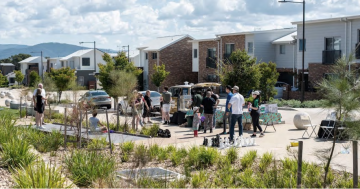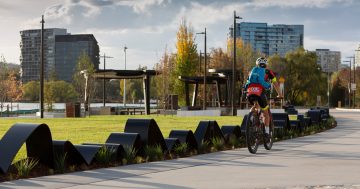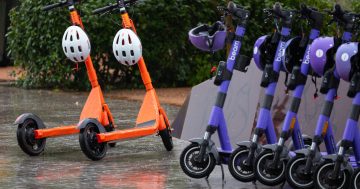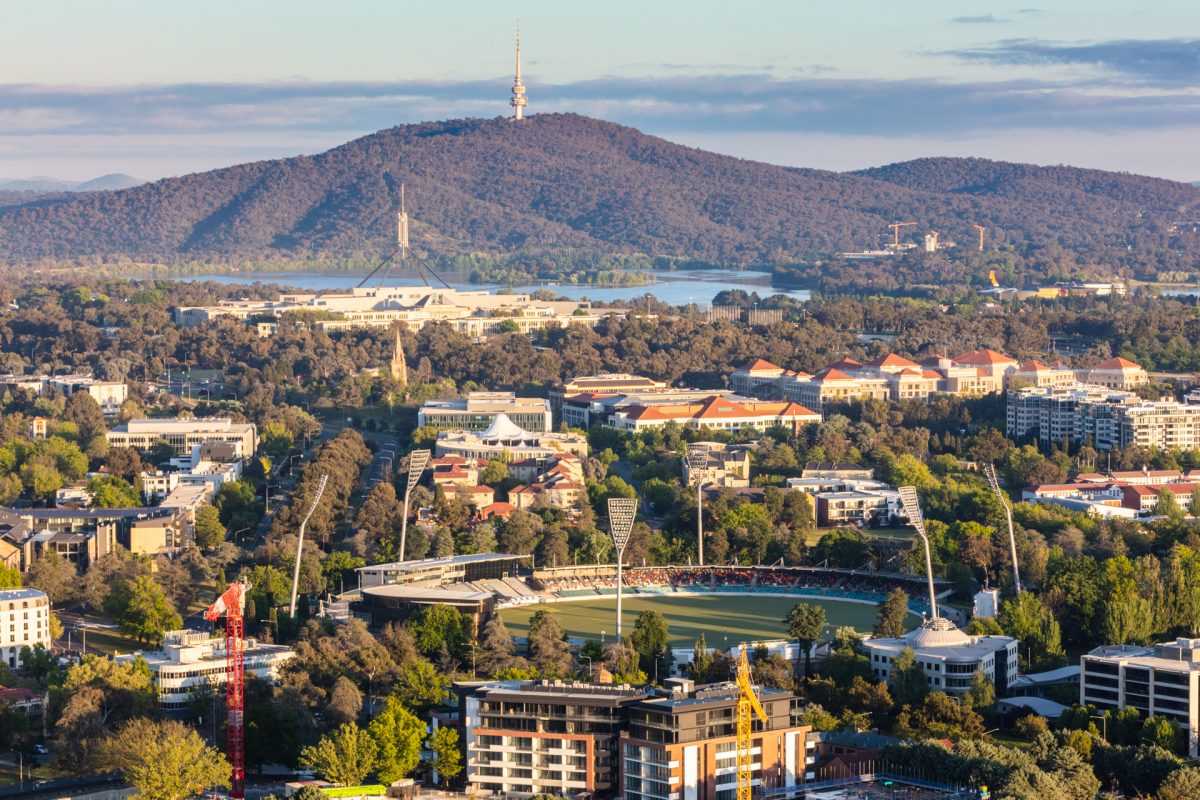
The ACT and surrounds scored the lowest of the ‘low wellbeing’ ratings of any Australian region. Photo: Thomas Lucraft.
People living in Canberra and the surrounding region are happier, on average, than Australians in any other area of the country, according to a new survey.
First conducted by the University of Canberra’s Health Research Institute in 2019, the “Living well in the ACT region” survey was this year told by 17.6 per cent of local respondents they were experiencing low wellbeing. This compares to 24.8 per cent of average Australians.
Lead researcher Professor Jacki Schirmer said they didn’t ask people directly for reasons but compared with those from around the country and what is already known about wellbeing determinants, a few clear trends emerged.
The first is that money does – to some degree, at least – buy happiness.
“Every year for at least the past decade, Canberra has come out on top in terms of median household incomes,” Professor Schirmer said.
“And as much as we don’t like to say that money matters to wellbeing, it actually does. Having enough money to live a comfortable life matters. Once you have that, more money doesn’t matter as much.”
The latest Census showed that the ACT had a median weekly income of $2373 per household. This is well above the national median of $1746.
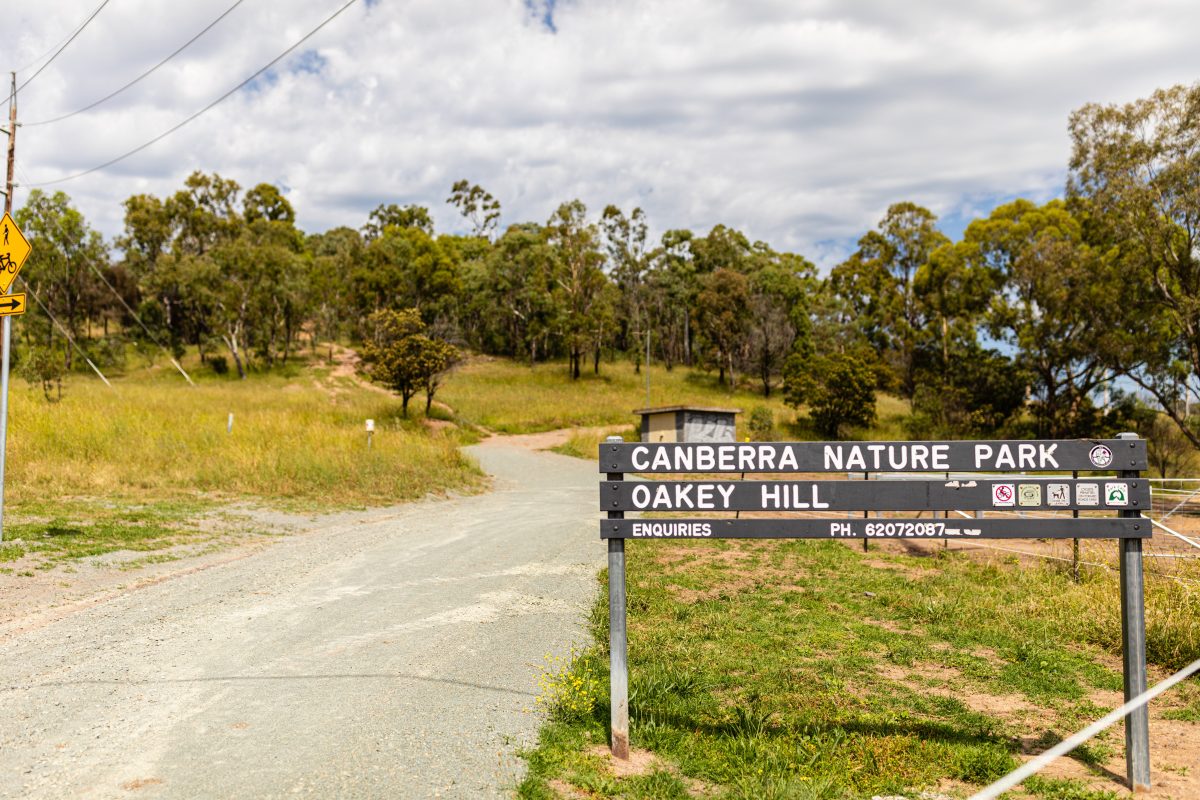
Our easy access to nature has something to do with it. Photography: Daniella Jukic – We Are Found.
“We’re also a very liveable city,” Professor Schirmer said.
Canberra was voted the world’s third best city to visit in Lonely Planet’s Best in Travel 2018. It was also the OECD world’s most liveable city in 2014. A big part of this has to do with our short commutes.
“We have the shortest commuting times of any significant city in Australia and that makes a really big difference.”
Those who take longer to get to and from work every day typically have lower wellbeing, a phenomenon common to the capital cities of Melbourne, Sydney, Brisbane and even Adelaide.
“More people here get more time to spend doing the things they want to, so we tend to have a better time use balance because of that,” Professor Schirmer said.
According to a 2019 report by the Melbourne Institute, the time it took the average Canberran to drive to and from work each day was 51.5 minutes in 2017. This compared to 71.1 minutes for Sydney and 65.4 minutes for Melbourne, but has increased by 20 minutes since 2002.
The Bush Capital, and our easy access to nature areas, also gets a mention at this point.
“It really does work for wellbeing,” Professor Schirmer said.
People also find us to be a friendly bunch, on the whole.
“That was something that surprised us a bit because we don’t have that reputation nationally,” Professor Schirmer said.
The UC survey looks at data from those who have just recently arrived in Canberra and compares that to long-timers.
“It takes people about three to five years to settle in, and by then you have a really good social life and you find the city really friendly.”

Older people were up but the young were down. Photo: File.
The happiest group of Canberrans were older people, another surprise for the UC team.
“For those between the ages of 60 to 75, you have really high wellbeing compared to the average retired person elsewhere in the country,” Professor Schirmer said.
At that stage, a lot of our retirees are living on a handsome amount of superannuation and have paid their house off.
“We were very worried that the pandemic would leave older people very isolated, but we actually found the isolation issues were worse for the 18-29 year olds,” Professor Schirmer said.
However, it wasn’t all good news. Liveability is down by 6.9 per cent on the 2020 survey, with the greatest decline in wellbeing among renters, those living in units and apartments, and those who have lived in Canberra less than five years.
“Carers had a particularly large drop in what was already a lower than average level of wellbeing amongst this group, along with those living with a mental health disability,” Professor Schirmer said.
“This is due to not being able to get the people they’re caring for to appointments, changes in financial support, and having to socially isolate for extended periods because the people they’re caring for are highly vulnerable.”
Professor Schirmer said the data would help inform the ACT Government’s ACT Wellbeing Framework.
“We’re really excited to be doing work that takes wellbeing from being on the fluffy side to being able to really track hard data on who is doing well and who isn’t,” she said.
“We’re trying to turn it into real actionable data so we can point to the groups who need support.”
People living in Canberra, and the surrounding regions including Queanbeyan, Yass and Murrumbateman, are invited to take part in the next phase of research by reporting how their wellbeing is going in 2022. Take part in the 10-minute “Living well in the ACT” region survey online.













